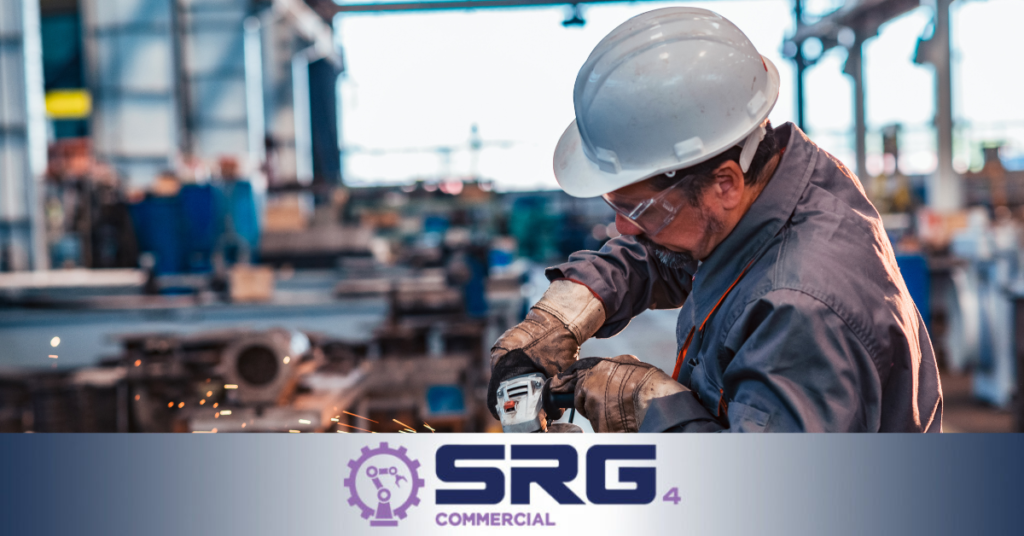As commercial manufacturing becomes increasingly advanced, the demand for skilled labor has never been higher. From operating high-tech machinery to ensuring safety protocols, skilled professionals play a pivotal role in the efficiency and innovation of manufacturing processes. Without their expertise, maintaining quality standards and meeting production goals would be nearly impossible.
Manufacturing today relies on an agile, knowledgeable workforce that can adapt to new challenges, including automation and digital integration. As industries grow and adopt cutting-edge technology, skilled labor becomes essential not only for maintaining current operations but also for driving advancements. If you’d like to learn more, here’s a deep dive into the importance of skilled labor in commercial manufacturing.
Why Skilled Labor is Essential in Modern Manufacturing
Skilled labor is the backbone of modern manufacturing, ensuring that complex machinery and processes operate safely and efficiently. Skilled workers bring specialized knowledge and hands-on experience indispensable for maintaining production quality and meeting stringent safety standards.
These professionals manage critical aspects of production, including machine calibration, troubleshooting, and quality control, preventing costly errors and minimizing downtime. Additionally, In an industry where quality and speed are often at odds, skilled workers balance these priorities with precision. They support innovation by helping companies integrate new technologies into existing production processes.
Ultimately, skilled labor ensures a stable production environment where companies can innovate confidently, knowing that their workforce has the expertise needed to handle advanced technologies.
Key Roles in the Commercial Manufacturing Workforce
Manufacturing relies on a range of skilled roles to maintain seamless operations and uphold quality standards. Machinists, for instance, are responsible for operating and programming machinery, while maintenance technicians ensure that equipment runs smoothly. Quality control inspectors play a crucial role in identifying issues before products leave the factory, helping companies avoid costly recalls and maintain customer satisfaction.
Other key roles include production supervisors, who oversee daily operations and ensure safety and productivity, and welders, whose precision work is essential in industries like automotive and aerospace.
Each position requires technical training and hands-on experience, with workers in these roles often collaborating to meet production goals. Together, they form a cohesive workforce capable of delivering high-quality products that meet industry standards.
Training and Certification Paths for Aspiring Professionals
Aspiring manufacturing professionals can choose from various training programs and certifications that prepare them for skilled labor positions. Technical schools, apprenticeships, and community colleges offer foundational knowledge and hands-on experience in areas like machinery operation, welding, and quality assurance. Certifications, such as the Certified Manufacturing Associate (CMA) or Certified Production Technician (CPT), can enhance employability and open doors to specialized roles.
The Future of Skilled Labor in Manufacturing: Trends and Opportunities
The future of skilled labor in manufacturing is marked by growing opportunities driven by technological advancements and an increasing emphasis on sustainability. Automation and robotics are reshaping the industry, requiring a workforce adept in digital and technical skills. As a result, skilled laborers proficient with Industry 4.0 technologies, such as IoT and AI-driven machinery, are in high demand as companies seek to streamline production and improve efficiency.
With a focus on eco-friendly practices, many manufacturers are also adopting sustainable methods, creating new roles emphasizing environmental responsibility. This shift presents exciting career paths for skilled workers interested in green technologies and sustainable manufacturing processes.
SuRGe Ahead in Your Skilled Manufacturing Career with Staffing Resource Group
Are you looking for the next step in your manufacturing career? The Staffing Resource Group connects skilled professionals with top opportunities in commercial manufacturing. Whether you’re an experienced machinist, quality control specialist, or production supervisor, we can help you find a role that fits your skills and ambitions. Take the next step toward a fulfilling career in an industry that values expertise and innovation. Apply today and experience the SRG4 difference!



